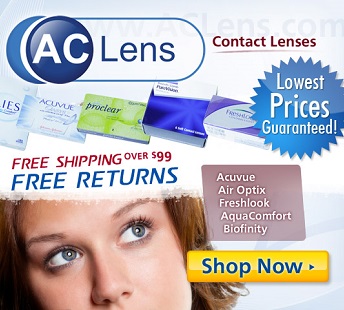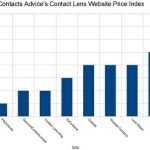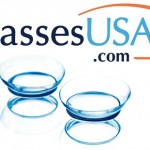Sponsored Link
Contacts Advice FAQ |
Julie’s Quora Qs & As |
Contact Lenses FAQ |
| [showhide type=”links16″ more_text=”How does this site work?” less_text=”How does this site work?”]I take the top contact lens brands from every major contact lens supplier in the industry, and check their prices at each of the biggest online retailers of contact lenses in the industry. I then direct you to where you can find each of these brands at the lowest price on the internet. All this information can be found on my ‘Lowest Prices’ page.[/showhide][showhide type=”links17″ more_text=”How often are the prices updated?” less_text=”How often are the prices updated?”]I check and record the prices of every brand listed on the ‘Lowest Prices’ page at every online retailer also listed on the ‘Lowest Prices’ page once a week. I always update the date the prices were last checked on the ‘Lowest Prices’ page.[/showhide] [showhide type=”links18″ more_text=”Why can’t I find my contact lens brand on this site?” less_text=”Why can’t I find my contact lens brand on this site?”]Unfortunately, there are far too many contact lens brands for me to monitor on my own. However, the contact lenses that I do track for you the best and the latest in the industry. For the benefit of everyone, I am not interested in promoting old, untrustworthy or disreputable contact lenses. But if you wear a good brand that’s not listed on this page, you can let me know the name at julie@contactsadvice.com and I may add it to the site.[/showhide] [showhide type=”links19″ more_text=”What are my qualifications?” less_text=”What are my qualifications?”]I am a certified paraoptometric assisstant, and I am the head of the contact lens department in a large, busy private practice optometry clinic. I do everything contact lens related ranging from teaching and training first time wearers, fittings and re-fittings, progress checks, etc. Behind the scenes, I meet with our industry supplier representatives who keep me up to date with the newest developments in the industry, I organize and stock our contact lens inventory, and I read non-industry supplied information on my own time. I work with several optometrists who also provide with a lot of knowledge and answer any questions I have for them. And I have personally worn contact lenses for over 15 years.[/showhide][showhide type=”links20″ more_text=”Am I a doctor?” less_text=”Am I a doctor?”]No.[/showhide][showhide type=”links21″ more_text=”Should anything I write be considered medical advice?” less_text=”Should anything I write be considered medical advice?”]No.[/showhide] | What are some ways to protect eye straining from computers?Can you wear expired contact lenses if you disinfect them in solution before wearing them?
How do I cure my color blindness? I have a question about glasses and contact lens? Do people with different colors of irises have the same eyesight? Where’s the best place to buy contact lenses online? How did we find out the way in which other animals see? What kind of first jobs do optometry majors tend to get? What are the best online stores to order prescription Eyeglasses in USA? [showhide type=”links211″ more_text=”Show More” less_text=”Show Less”]Do eyes dilate after you lose nerve control of it? What are the best contacts suited for astigmatism? What are some good contacts for astigmatism? Does astigmatism mean cross-eyed? Can I use contact lenses while surfing in the ocean? Why do my eyes tire quickly when I wear contact lenses? How can shortsightedness be cured to the point of not having to depend on lenses to see clearly? What is the job market like for someone with an undergraduate degree in optometry? |
[showhide type =”links1″ more_text=”Can I sleep in my contact lenses?” less_text=”Can I sleep in my contact lenses?”] The short answer is it depends. The long answer can be found here.[/showhide]
[showhide type =”links2″ more_text=”What are extended wear contact lenses?” less_text=”What are extended wear contact lenses?”]The term ‘extended wear contact lenses’ refers to contact lenses that you can sleep in. There are many brands that are approved for several days of extended wear, although they are not commonly prescribed that way. For more information on brands that are approved for extended wear, read my post about sleeping with contact lenses. [/showhide][showhide type =”links3″ more_text=”What are daily disposable contact lenses?” less_text=”What are daily disposable contact lenses?”]Daily disposable contact lenses (often referred to simply as daily lenses, or dailies) are lenses that you wear for a single day, then throw out, as oppose to cleaning, storing and re-wearing them. Learn more about daily contacts here.[/showhide][showhide type =”links4″ more_text=”What are multifocal contact lenses?” less_text=”What are multifocal contact lenses?”]Multifocal contact lenses are contact lenses for presbyopes, or in other words, for people generally over the age of 40 who have difficulty focusing on things up close. They are analogous to progressive lenses in glasses, that allow you see clearly both far away and up close. However, multifocal contact lenses don’t have a separate area for distance viewing and near viewing. It is generally all combined together and your brains selectively pays attention to the vision that is appropriate for the distance you are looking at. For that reason, although multifocal contact lenses do provide clear distance and near vision, neither will be as clear as with your glasses. It should be understood before attempting to wear these types of lenses, that there are some things that you may still have difficulty seeing, such as fine print or objects under dim illumination.[/showhide]
[showhide type =”links5″ more_text=”Where can I find the cheapest contact lenses online?” less_text=”Where can I find the cheapest contact lenses online?”]Right here on Contacts Advice. Just check out my lowest prices page.[/showhide] [showhide type =”links6″ more_text=”Can I get colored contact lenses for astigmatism?” less_text=”Can I get colored contact lenses for astigmatism?”]Ciba Vision (now Alcon) use to make a brand of colored contact lenses for astigmatism called FreshLook ColorBlends Toric. Unfortunately, due to low demand for these lenses, the line was discontinued back in 2014. Alcon now focuses on marketing their new color contacts Air Optix Colors, but unfortunately, it does have an option for astigmatism yet.Color contact lenses for astigmatism can still be found, but for the moment they are only available through companies who specialize in custom contact lenses. One such company is Alden Optical who manufacture the BioColor line which is available in a large range of powers include astigmatism correction.[/showhide] [showhide type =”links7″ more_text=”Can I get colored bifocal/multifocal contact lenses?” less_text=”Can I get colored bifocal/multifocal contact lenses?”]Although some specialty contact lens companies may make color multifocal/bifocal contact lenses, the main companies Alcon, Johnson & Johnson, Coopervision and Bausch & Lomb don’t. Unfortunately, you will not be able to find any colored multifocal/bifocal contacts through the links on this website. There just simply isn’t enough demand for colored multifocal/bifocal color lenses for the big companies to mass manufacture them. [/showhide] [showhide type =”links8″ more_text=”What is astigmatism?” less_text=”What is astigmatism?”]Here’s the definition of astigmatism from The Free Dictionary: A visual defect in which the unequal curvature of one or more refractive surfaces of the eye, usually the cornea, prevents light rays from focusing clearly at one point on the retina,resulting in blurred vision. If that doesn’t exactly make sense to you, allow me to give it a shot. Read my post on What Is Astigmatism? [/showhide] [showhide type =”links9″ more_text=”What are contact lenses made of?” less_text=”What are contact lenses made of?”]Soft contact lenses are from a type of plastic called hydrogels. Hydrogels are named so because in the absence of water (hydro) they become very dry and brittle. But when exposed to water they turn into a soft gel-like material. If you look on your contact lens box you should be able to find a word that ends with the letters ‘filcon’. That is the name of the particular hydrogel for that brand. There are two main kinds of hydrogels: the conventional hydrogels and the silicone hydrogels. Silicone hydrogels are the preferred material by most optometrists because they allow 5X more oxygen to flow through them than conventional hydrogels. Conventional hydrogels can deprive the cornea of oxygen and lead to problems (such as redness, swelling, and infections) if worn for too long. But silicone hydrogels let so much oxygen through that some of them are approved for wear 24/day for up to 30 days![/showhide] [showhide type =”links10″ more_text=”What does the BC number mean?” less_text=”What does the BC number mean?”]The BC number on your contact lens box is something called the base curve of your contacts. This represents the curvature (how steep or how flat) your contacts are in millimeters. Base curves usually vary between 8.4 and 8.9. The reason this number is specified is because in order to have a properly fitting contact lens, the curvature of the lens should be a close match to the curvature of your cornea. If not, your contact lenses may be too tight or too loose on your eyes. Either of these scenarios can lead to discomfort with the lenses or issues with the health of your eyes. [/showhide] [showhide type =”links11″ more_text=”What does the DIA number mean?” less_text=”What does the DIA number mean?”]The number DIA you see on your contact lens boxes is the diameter of your contact lenses in millimeters. This number is important because contact lenses are meant to cover the entire cornea and the edges of the contacts should lie a couple of millimeters off of the cornea all the way around. Most people have fairly similar sized corneas for anyone with a fairly average sized cornea, the diameter of the lenses will not be that important. However, if you have a smaller or larger than average cornea, selecting an appropriate diameter for your contact lenses becomes more important.Additionally, the contact lens diameter may matter if the opening of your eyes are very small and you’re having difficulty inserting the lenses. Selecting a smaller diameter in this case would be better for you (assuming is still completely covers the cornea).[/showhide] [showhide type =”links12″ more_text=”Can I swim in with my contact lenses?” less_text=”Can I swim in with my contact lenses?”]No, it is not a good idea to swim with your contact lenses. However, more needs to be said.Historically, the reason given for why not to swim with your contact lenses if because of the increased risk of lens contamination leading to an eye infection. Regardless of what you are swimming in, the water tends to contain some amount of living micro organisms. If these happen to get onto your contacts, the warm, moist environment created between your contact and your eye becomes a breeding ground for those organisms and can quickly lead to an eye infection.However, with more and more people now switching to daily contact lenses, this is becoming less and less of an issue. Daily contact lenses do not offer micro organisms a chance to multiply and infect your eyes because they are thrown out by the end of the day.So I would say, avoid swimming with your lenses if you wear monthly or weekly lenses. With daily lenses it is OK.But don’t forget, regardless of what type of lens you are wearing, you run the risk of loosing them if you open you eyes under water. So don’t go crazy.[/showhide] [showhide type =”links13″ more_text=”Can I shower with with my contact lenses?” less_text=”Can I shower with with my contact lenses?”]Yes you can, however it’s not the most advisable thing.Showering with your contact lenses exposes them to the non-sterilized shower water which can contaminate your contact lenses. If any micro-organism (which can be found in your tap water) finds its way onto your contacts, the warm, moist environment created between your contact and your eye becomes a breeding ground for those organisms and can quickly lead to an eye infection.Furthermore, you may find that showering with your contact lenses dries them out, and they may feel rather uncomfortable for some time afterwards. If you are planning to remove your contact lenses immediately after a shower, you may want to insert lubricating eye drops, otherwise removing them may feel more ‘peeling’ them off your eyes. You can learn more about showering with contacts here.[/showhide] [showhide type =”links14″ more_text=”Can I share my contact lenses?” less_text=”Can I share my contact lenses?”] I like to think I am a reasonable person, and try to find the good behind every idea. But there is absolutely no good reason why anyone should share their contact lenses with someone else. It is a bad idea through and through. Please don’t do it.[/showhide] |



